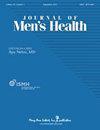勃起功能障碍与高血压、消极心理之间的因果关系:一项孟德尔随机研究
IF 0.6
4区 医学
Q4 Medicine
引用次数: 0
摘要
勃起功能障碍(ED)与高血压(HBP)和心理特征密切相关,但两者之间的因果关系尚不清楚。在此,我们旨在确定ED的因果危险因素。我们使用与代谢综合征和心理特征相关的遗传变异进行了单变量和多变量孟德尔随机化(MR)分析,具有全基因组意义(p <从相应的全基因组关联研究中获得的5 × 10−8)水平。我们使用了欧洲生物信息学研究所(EBI)全基因组关联研究(GWAS)汇总数据数据库中ED的汇总统计数据。我们也进行了反向因果关系和权力执行计算,我们的结果表明,HBP增加的几率ED(优势比(或)= 1.66(95%可信区间(CI), 1.13 - -2.45),假定值的加权方差倒数法(PIVW) = 1.06×10−2,功率= 100%),和心肌梗死(或= 1.09 (95% CI, 1.02 - -1.17), PIVW = 1.18×10−2,功率= 56%)和缺血性中风(或= 1.21 (95% CI, 1.02 - -1.43), PIVW = 2.87×10−2,功率= 10%)。在心理特征方面,易怒情绪(OR = 1.86 (95% CI, 1.14-3.02), PIVW = 1.30 × 10−2,Power = 96%)和神经质(OR = 1.36 (95% CI, 1.04-1.79), PIVW = 2.66 × 10−2,Power = 80%)与ED的几率增加有关。孟德尔随机化多效性残差和异常值(MR-PRESSO)未显示多效性偏倚的证据,敏感性分析证实了我们结果的稳健性。我们已经建立了高血压和ED之间的因果关系,我们也发现了易怒情绪和ED之间存在因果关系的证据。本文章由计算机程序翻译,如有差异,请以英文原文为准。
Causal associations between erectile dysfunction and high blood pressure, negative psychology: a Mendelian randomization study
Erectile dysfunction (ED) has been closely associated with both high blood pressure (HBP) and psychological traits, but the causal relationship between them remains unclear. Herein, we aimed to identify the causal risk factors for ED. We conducted univariable and multivariable Mendelian randomization (MR) analyses using genetic variants associated with metabolic syndrome and psychology traits at the genome-wide significance (p < 5 × 10−8) level obtained from corresponding genome-wide association studies. We used summary-level statistical data for ED from the European Bioinformatics Institute (EBI) database of complete Genome-Wide Association Studies (GWAS) summary data. We also conducted reverse causality and performed power calculations for MR. Our results showed that HBP was associated with increased odds of ED (odds ratio (OR) = 1.66 (95% confidence interval (CI), 1.13–2.45), a p-value for the inverse variance-weighted method (PIVW ) = 1.06 × 10−2, Power = 100%), as were myocardial infarction (OR = 1.09 (95% CI, 1.02–1.17), PIVW = 1.18 × 10−2, Power = 56%) and ischemic stroke (OR = 1.21 (95% CI, 1.02–1.43), PIVW = 2.87 × 10−2, Power = 10%). In terms of psychological traits, irritable mood (OR = 1.86 (95% CI, 1.14–3.02), PIVW = 1.30 × 10−2, Power = 96%) and neuroticism (OR = 1.36 (95% CI, 1.04–1.79), PIVW = 2.66 × 10−2, Power = 80%) were associated with increased odds of ED. Mendelian randomization pleiotropy residual sum and outlier (MR-PRESSO) showed no evidence of pleiotropic bias, and sensitivity analyses confirmed the robustness of our results. We have established a causal link between HBP and ED, and we have also found evidence suggesting a causal relationship between irritable mood and ED.
求助全文
通过发布文献求助,成功后即可免费获取论文全文。
去求助
来源期刊

Journal of Men's Health
Medicine-Urology
CiteScore
0.70
自引率
28.60%
发文量
153
审稿时长
10 weeks
期刊介绍:
JOMH is an international, peer-reviewed, open access journal. JOMH publishes cutting-edge advances in a wide range of diseases and conditions, including diagnostic procedures, therapeutic management strategies, and innovative clinical research in gender-based biology. It also addresses sexual disparities in health, life expectancy, lifestyle and behaviors and so on. Scientists are encouraged to publish their experimental, theoretical, and descriptive studies and observations in as much detail as possible.
 求助内容:
求助内容: 应助结果提醒方式:
应助结果提醒方式:


